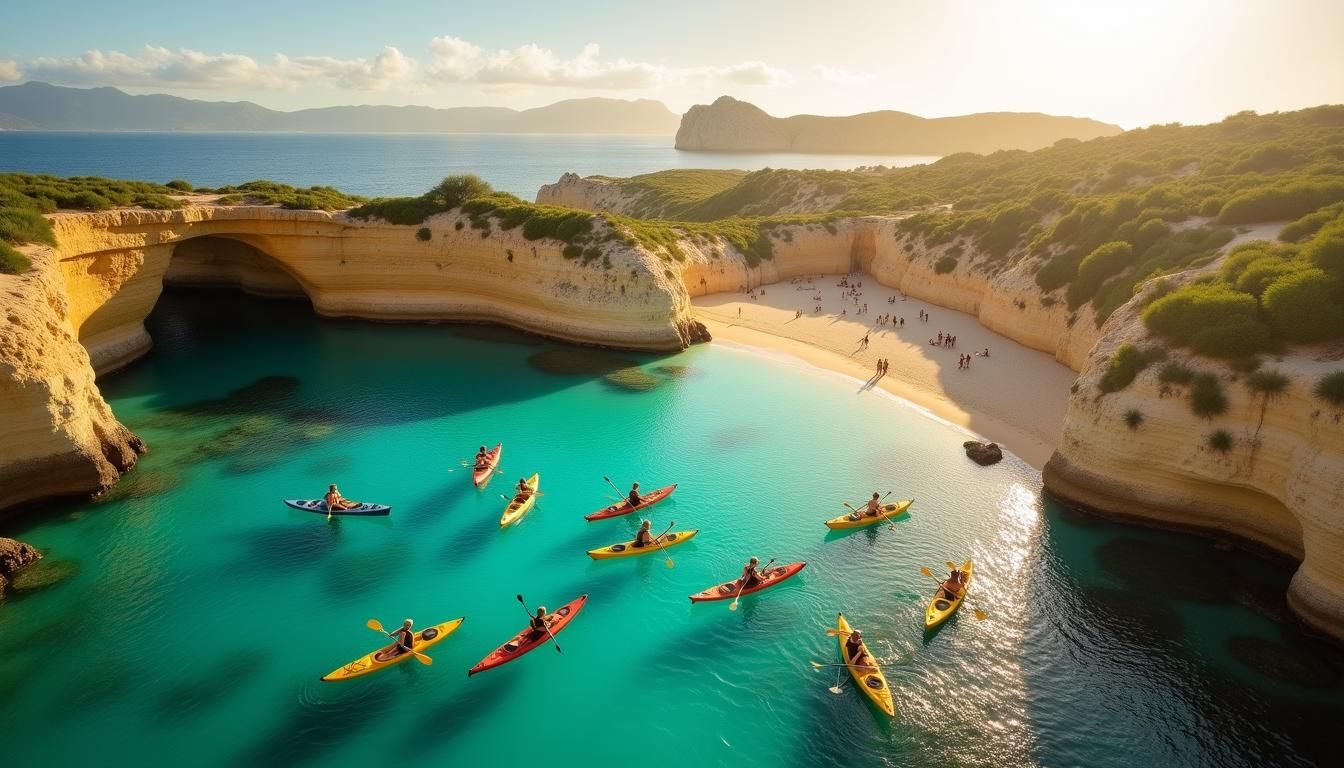
Cabo San Lucas is a paradise where desert landscapes meet crystalline waters, offering unparalleled opportunities for sustainable adventures. As part of Baja California Sur’s commitment to preserving its natural wonders, the region has become a leader in eco-conscious tourism. From marine conservation programs to carbon-neutral excursions, Cabo invites travelers to explore responsibly. Here at Mucho Cabo, we’re passionate about showcasing experiences that honor the environment while connecting visitors to the soul of this vibrant destination. Below are five exceptional eco-tours that blend adventure with sustainability.
Operator: Cabo Private Guide
Season: Late November to Mid-April
Witness humpback whales, blue whales, and orcas in their natural habitat aboard a private, eco-conscious vessel. This 2.5-hour tour emphasizes minimal environmental impact by adhering to strict wildlife viewing guidelines, ensuring a safe distance from marine mammals. Marine biologists onboard provide insights into whale behavior and conservation efforts, while the "sightings guarantee" reduces unnecessary fuel consumption from prolonged searches.
Why It’s Sustainable:
- Supports research through partnerships with local marine conservation organizations.
- Uses low-emission boats to reduce carbon footprint.
- Free photos included to discourage disposable camera waste.
Pro Tip: Opt for morning tours—calmer seas and active wildlife increase your chances of sightings!
Operator: Cabo Private Guide
Dive into citizen science by assisting researchers in tracking Mobula rays, known for their spectacular aerial breaches. Participants collect data on population numbers, migration patterns, and behaviors, which is shared with global conservation networks. The program also includes optional courses like the Shark Conservation Course and Coral Restoration Workshop, empowering travelers to contribute directly to marine preservation.
Why It’s Sustainable:
- Data collected aids in establishing protected marine corridors.
- Promotes ethical interactions with marine life through education.
- Part of proceeds fund local reef restoration projects.
Pro Tip: Bring a waterproof notebook to jot down observations during your dives!
Operator: Cabo Sails
Glide past Land’s End and the iconic El Arco aboard a sailboat powered by solar panels and an electric engine. This zero-emission tour includes snorkeling at Pelican Rock, a protected marine area teeming with tropical fish, and paddleboarding in the tranquil waters of Santa Maria Bay. The menu features locally sourced ingredients, reducing food miles, and avoids single-use plastics with reusable serviceware.
Why It’s Sustainable:
- Solar-powered vessel eliminates fossil fuel use.
- Supports "Blue Flag" certified beaches through cleanup partnerships.
- Complimentary reef-safe sunscreen provided to guests.
Pro Tip: Keep an eye out for sea lions basking on the rocks near the Arch!
Operator: Adventures in Baja
Explore Cabo Pulmo, a UNESCO World Heritage Site and home to the only living coral reef in the Gulf of California. This guided snorkeling tour highlights the reef’s biodiversity, including parrotfish, sea turtles, and rays. Guides emphasize "no touch, no trace" principles to protect fragile ecosystems, and tours are capped at small groups to prevent overcrowding.
Why It’s Sustainable:
- Fees contribute to Amigos para la Conservación de Cabo Pulmo.
- Eco-certified operator uses biodegradable cleaning products for gear.
- Educational briefings on coral reef conservation included.
Pro Tip: Visit between August and October for warmer water and optimal visibility.
Operator: Local Conservation Groups (e.g., Los Cabos Tortuguero Network)
Participate in releasing olive ridley sea turtle hatchlings into the Pacific Ocean, a heartwarming activity that supports species recovery. After nesting season (June–December), trained guides educate visitors on threats to turtles, including plastic pollution and habitat loss, while demonstrating proper release techniques to ensure hatchlings reach the surf safely.
Why It’s Sustainable:
- Directly funds beach patrols and nest protection initiatives.
- Raises awareness about coastal conservation.
- Aligns with Mexico’s National Biodiversity Strategy.
Pro Tip: Wear dark clothing—bright colors can disorient hatchlings!
Stay at Eco-Certified Accommodations
Choose hotels with Green Globe or LEED certifications, like Hotel El Ganzo or Grand Velas Los Cabos, which utilize solar energy, water recycling systems, and organic linens.
Dine Locally
Support farm-to-table restaurants such as Flora’s Field Kitchen, which sources ingredients from its 25-acre organic farm.
Join a Beach Cleanup
Organizations like Clean Up BCS host regular events to maintain Cabo’s 25 Blue Flag beaches.
Avoid Single-Use Plastics
Carry a reusable water bottle—many hotels offer refill stations.
Use Reef-Safe Sunscreen
Protect marine life by choosing mineral-based formulas free of oxybenzone and octinoxate.
Cabo San Lucas proves that adventure and sustainability can go hand in hand. By choosing eco-tours and mindful practices, travelers help preserve the region’s deserts, reefs, and wildlife for future generations. At Mucho Cabo, we believe that every responsible choice—whether releasing a turtle hatchling or sailing on solar power—adds up to create a lasting positive impact. Ready to explore Cabo’s wild side? Pack your sense of wonder (and a reusable bottle!), and let the desert-meets-ocean magic unfold.
